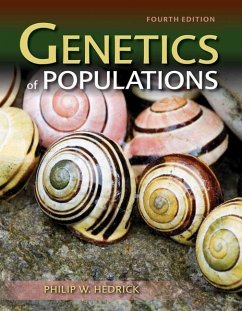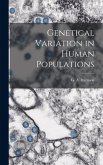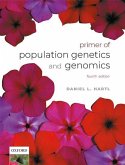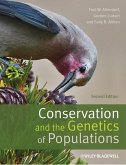The Fourth Edition of Genetics of Populations is the most current, comprehensive, and accessible introduction to the field for advanced undergraduate and graduate students, and researchers in genetics, evolution, conservation, and related fields. In the past several years, interest in the application of population genetics principles to new molecular data has increased greatly, and Dr. Hedrick's new edition exemplifies his commitment to keeping pace with this dynamic area of study. Reorganized to allow students to focus more sharply on key material, the Fourth Edition integrates coverage of theoretical issues with a clear presentation of experimental population genetics and empirical data. Drawing examples from both recent and classic studies, and using a variety of organisms to illustrate the vast developments of population genetics, this text provides students and researchers with the most comprehensive resource in the field.
Hinweis: Dieser Artikel kann nur an eine deutsche Lieferadresse ausgeliefert werden.
Hinweis: Dieser Artikel kann nur an eine deutsche Lieferadresse ausgeliefert werden.








